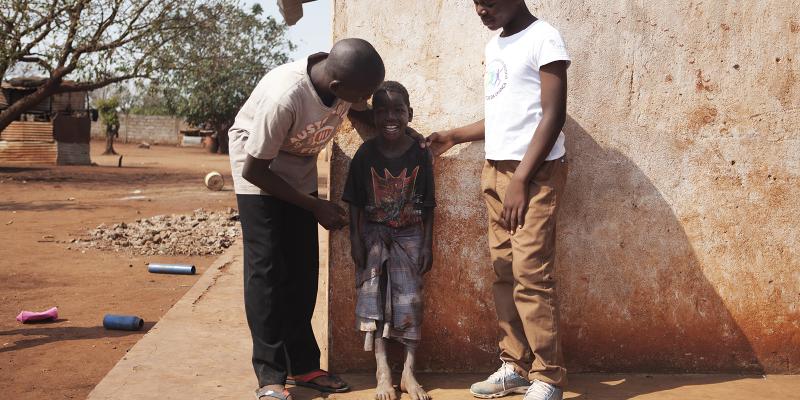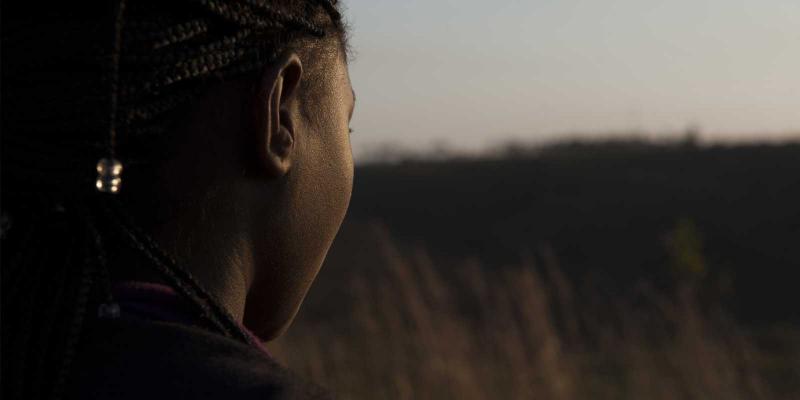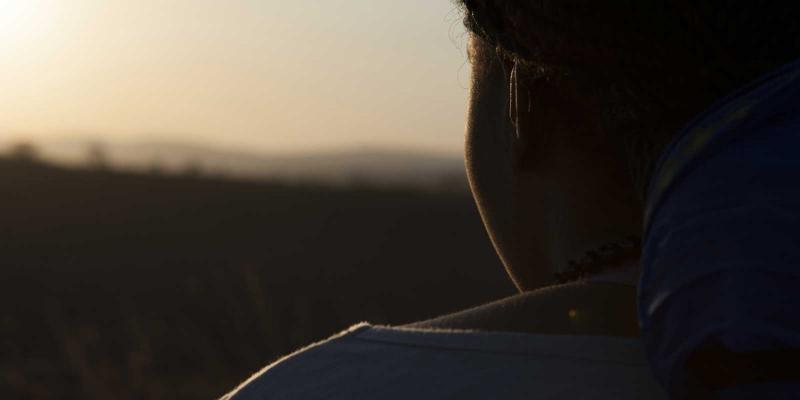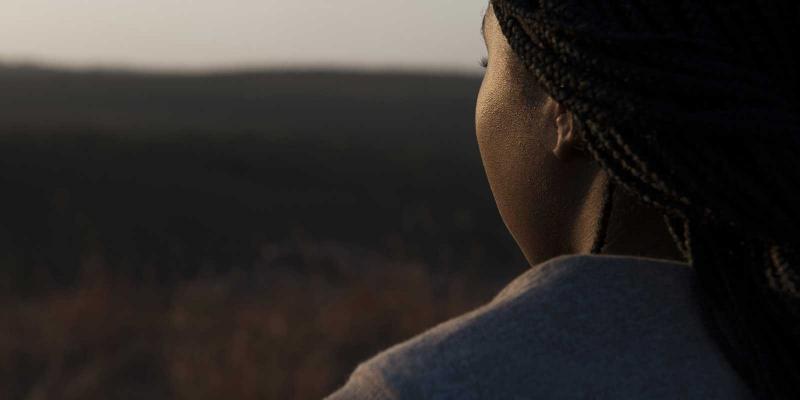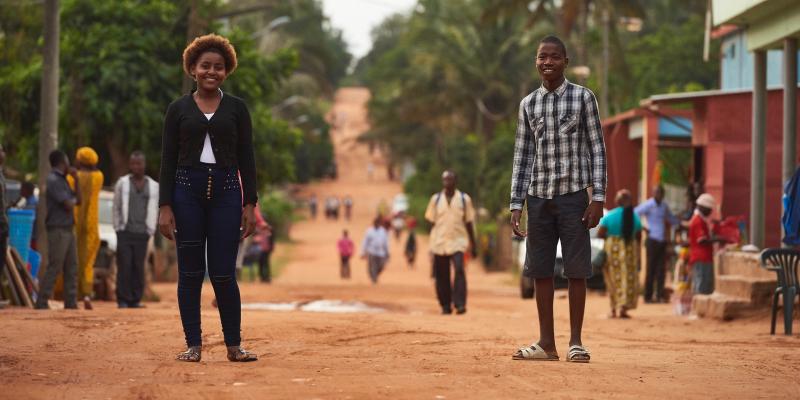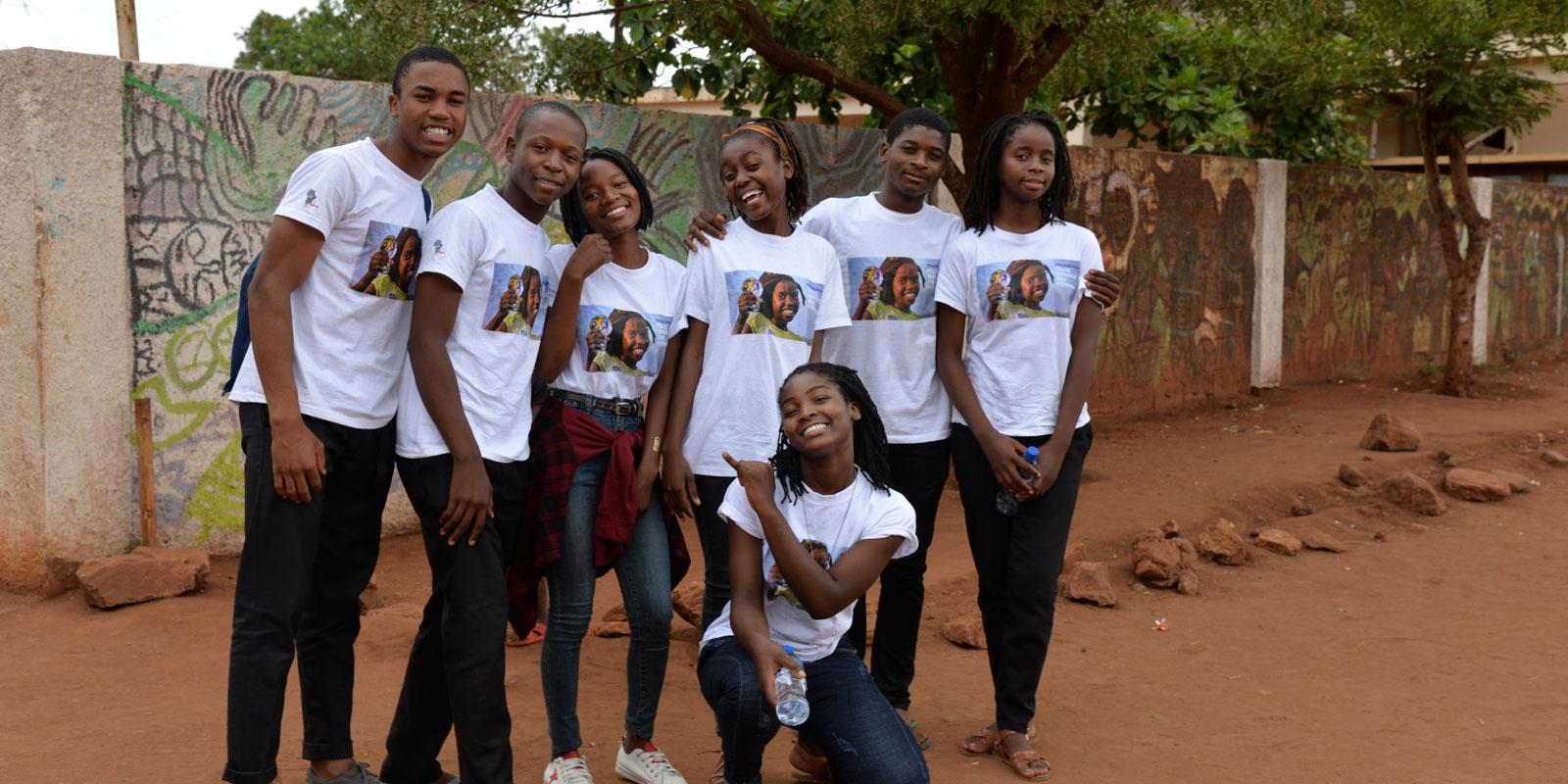
Xadreque, 17, and his WCP Child Rights Ambassadors friends educate their schoolmates about equal rights for girls. Twice a year they also visit all Boane’s eight schools to educate more than 5,000 pupils.
I became a WCP Child Rights Ambassador when I was thirteen years old. After my training I began fighting for equal rights for boys and girls. I had to start by changing my behaviour towards my sisters. My parents had taught me that there are certain things that girls do and certain things that boys do, but I was actually violating my sisters’ rights. “I feel that I have changed because I help now with all the chores at home and respect my sisters. For example, today I initially worked in the field all morning with my mother, and when I returned home, I fetched water. I want to show all boys and men that it is possible and that that is how it should be.”

Talking with parents
“I now visit schools and communities to share my knowledge and experience with all boys and girls and fight for equal rights. “If we come across some parents in villages and communities who aren’t respecting girls’ rights, two or three of us Child Rights Ambassadors usually go and visit them together. We talk to them about girls’ rights and how important it is that these are put into practice in their daughters’ lives. “We usually also hold meetings in schools and communities to explain how girls’ rights should be respected. We share our knowledge about children’s rights and obligations to boys and girls. We discuss, among other things, violence against children, sexual abuse, child marriage and trafficking of children.”
Changes in behaviour needed
“We also try to get boys to help their sisters and mothers at home. According to Mozambican tradition, boys and men have specific tasks such as working in the fields, building houses and tending livestock. The rest of the household chores and looking after children are for women and girls. I go to the field (machamba), but I also prepare food for my family. I fetch water, wash the dishes and sweep the yard. I hope that all boys around me will follow my example. “We must get boys and men to understand that they must change their behaviour towards girls. There will be change, but we must never tire of demonstrating the benefits of change. There are currently five of us boys who are Child Rights Ambassadors. We are now working together with local decision-makers such as the district’s education director and the police. “We will never stop fighting for girls’ rights, for many girls’ rights are still being violated. We see how many girls stop attending school because they become pregnant or don’t have enough time to do their homework at home.”Related stories
Långgatan 13, 647 30, Mariefred, Sweden
Phone: +46-159-129 00 • info@worldschildrensprize.org
© 2020 World’s Children’s Prize Foundation. All rights reserved. WORLD'S CHILDREN'S PRIZE®, the Foundation's logo, WORLD'S CHILDREN'S PRIZE FOR THE RIGHTS OF THE CHILD®, WORLD'S CHILDREN'S PARLIAMENT®, WORLD'S CHILDREN'S OMBUDSMAN®, WORLD'S CHILDREN'S PRESS CONFERENCE® and YOU ME EQUAL RIGHTS are service marks of the Foundation.



